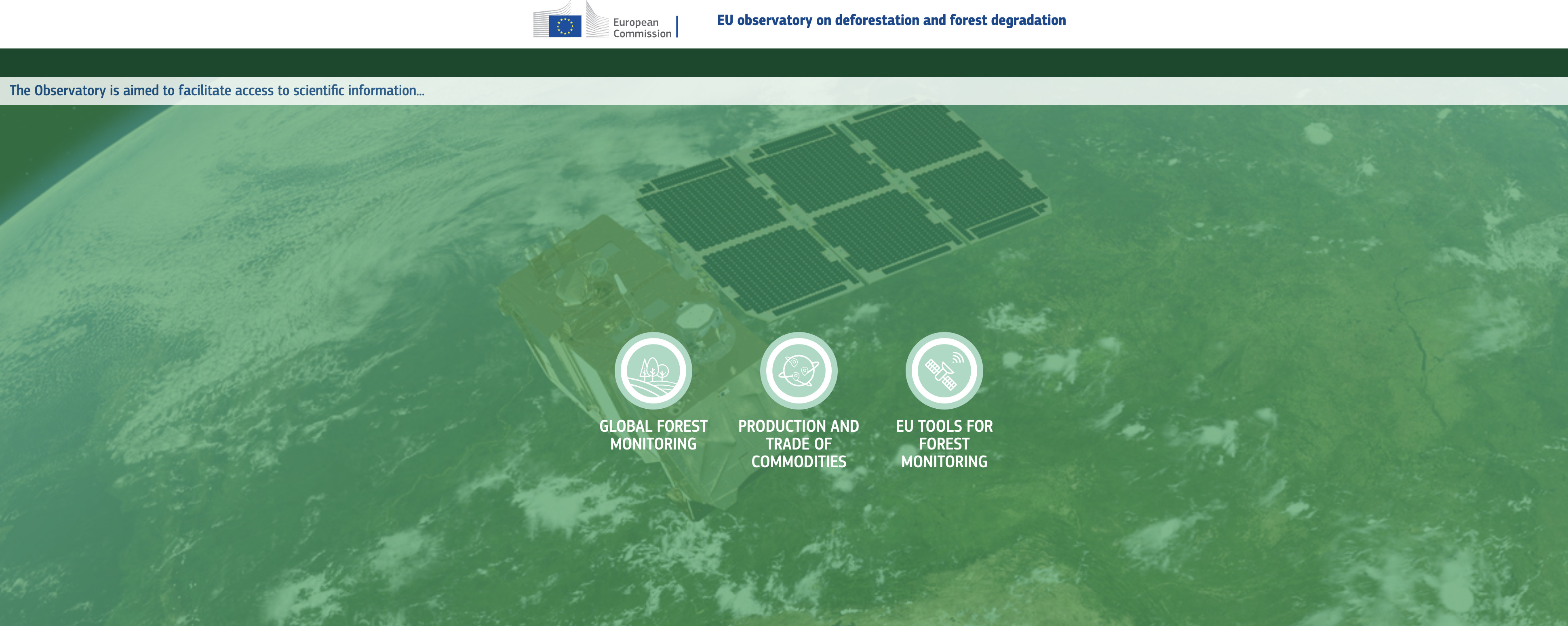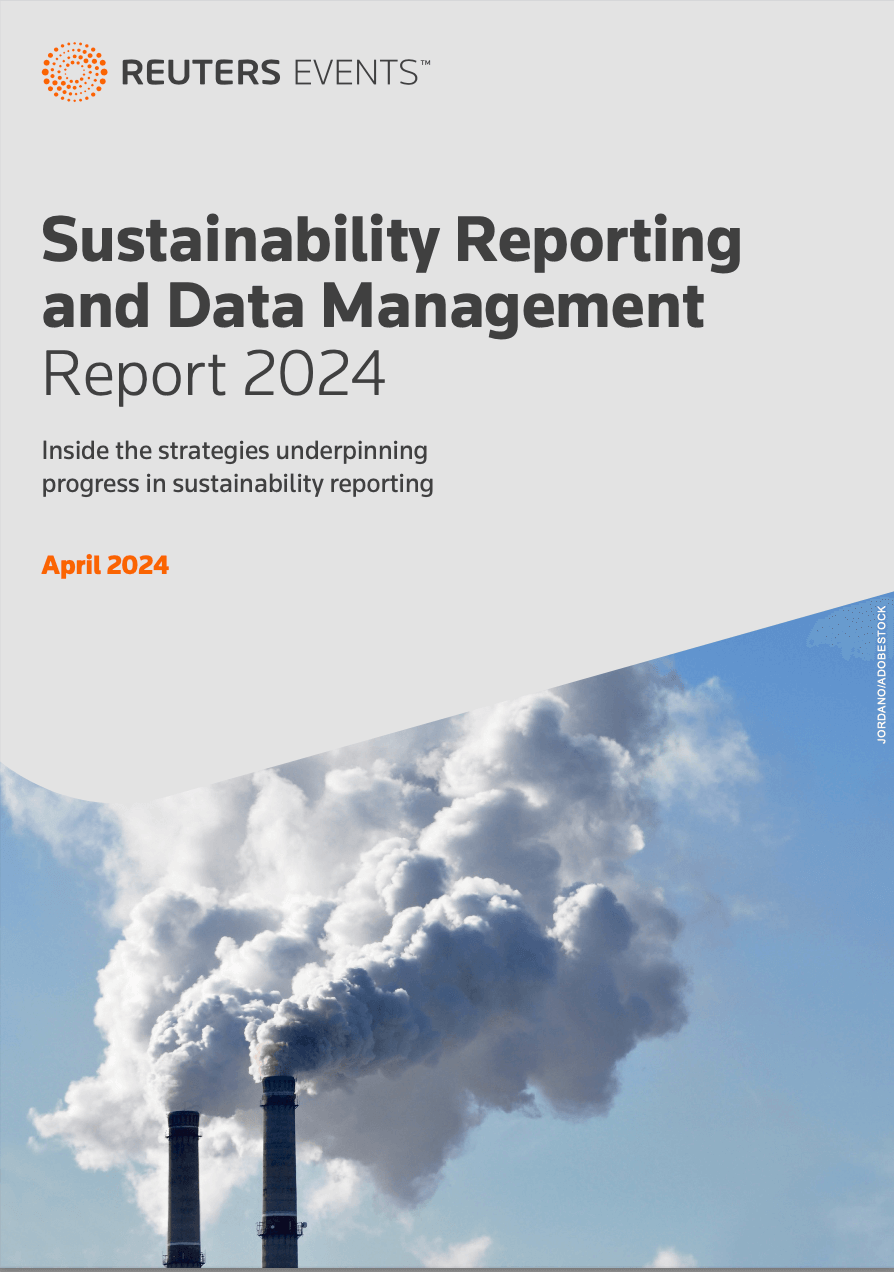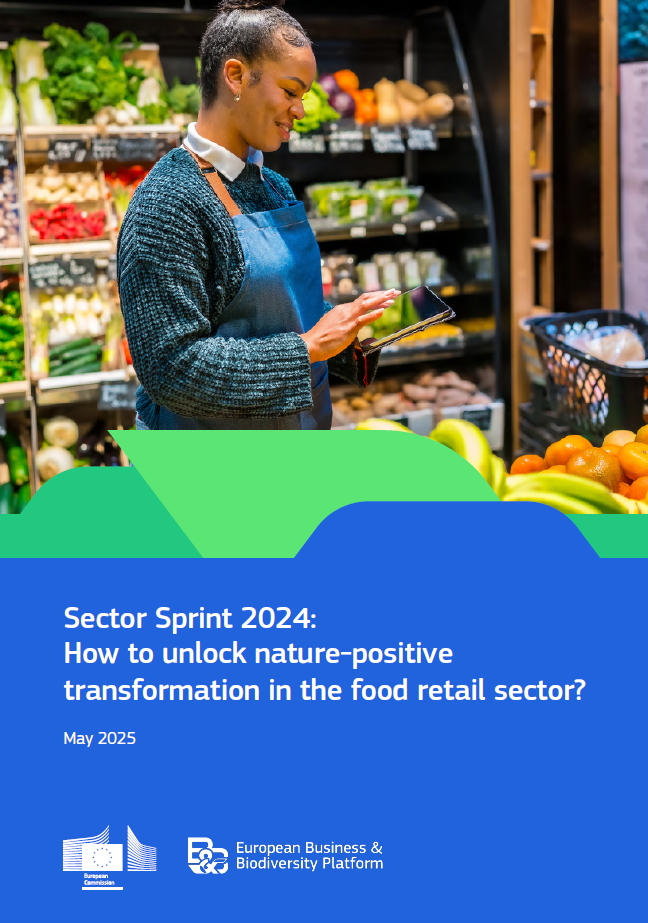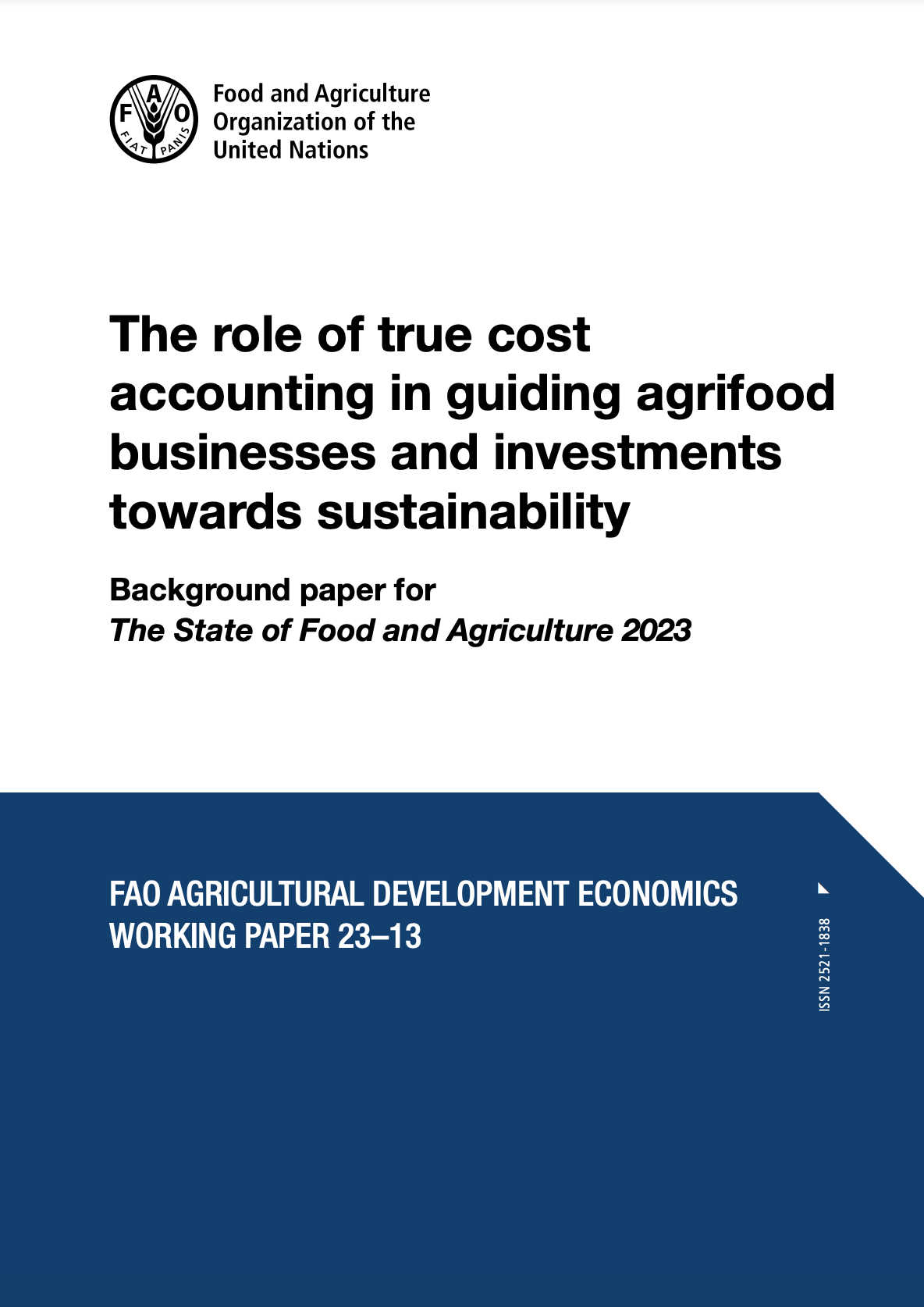The role of true cost accounting in guiding agrifood businesses and investments towards sustainability
Detalles
The current economic system, and in particular the way we fail to measure, value and report on the impact of food products and their consumption, is primarily responsible for today's unsustainable and unequal food systems. It mismatches incentives, neglects critical components in the distribution of economic value, and makes negative externalities economically invisible. Part of the launch of SOFA 2023 is the reference document The role of real cost accounting in guiding agri-food companies and investments towards sustainability, prepared by TMG. The paper describes how True Cost Accounting (TCA) and lessons learned from its application in the private and financial sectors can inform efforts to develop a sound economic foundation for sustainability. TCA enables the private sector to manage and account for the hidden costs of business operations and investments and the associated risks. It is a tool to measure and report on impacts on nature, people, the economy and society in financial terms, thus enabling integration into economic decision-making. |
Recursos relacionados

EU Observatory on Deforestation and Forest Degradation
The European Commission is working on the launch of the EU Observatory on Deforestation and Forest Degradation, which aims to…

Sustainability Reporting & Data Collection Strategies Outlook 2024
Sustainability reporting poses one of the most significant challenges for sustainability professionals today. The regulatory need for reporting – and…

Sector Sprint 2024: How to unlock nature-positive transformation in the food retail sector?
This report addresses the urgent need for nature-positive transformation in the food retail sector. Through a sectoral analysis using the…


